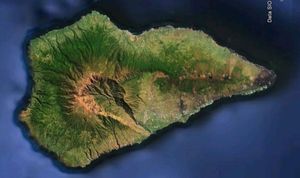The remaining five members of the Bali Nine drug smuggling ring have returned to Australia after spending nearly 20 years in Indonesian jails following a top secret release mission. Si Yi Chen, 39, Michael Czugaj, 38, Matthew Norman, 38, Scott Rush, 39, and Martin Stephens, 48, touched down in Australia on commercial flights on Sunday evening as free men. The five men will not face future imprisonment in Australia over their attempt to smuggle 8.3 kilograms of heroin out of Bali back in 2005.
The release arrangement with the Indonesian government has not been described as a clemency deal, and Australia does not have a prisoner transfer agreement with Indonesia. A statement released on behalf of the former prisoners stated they were "relieved and happy" to be back and expressed gratitude to those who had worked for their return. "The welfare of the men is a priority; they will need time and support, and we hope and trust our media and community will make allowance for this," the statement read.
Australian Prime Minister Anthony Albanese confirmed the men’s return, stating: "The five men committed serious offences, serving over 19 years in prison in Indonesia. We would like to convey our deep appreciation to the Government of Indonesia for its cooperation to facilitate the men’s return to Australia on humanitarian grounds." He stressed the importance of the bilateral relationship between Indonesia and Australia, noting the gravity of the drug issue both countries face.
The arrangement followed weeks of negotiations led by Albanese, who met with Indonesian President Prabowo Subianto at the APEC Summit held on November 15. Both leaders discussed the conditions for the men's return, which was framed within the lens of humanitarian consideration. Albanese underscored the need for cooperation between the two nations, emphasizing shared concerns about drug trafficking and transnational crime.
Upon their arrival, the men were transported to temporary accommodation, reportedly at Howard Springs near Darwin. They expressed hope for reintegration back to society and anticipated the necessary support during this transition. The completed release marks the end of a saga dating back to April 2005, when the group was arrested for attempting to smuggle heroin, drawing global scrutiny due to Indonesia's strict drug laws.
Notably, Chan and Sukumaran, the ringleaders of the Bali Nine, were executed by firing squad in 2015 for their roles, highlighting the severe consequences of drug offenses prosecuted by the Indonesian authorities. The case inspired considerable activism and debate surrounding the death penalty policy and the treatment of drug offenders within Indonesian prisons.
The release of the five members includes key stipulations: they are prohibited from returning to Indonesia. This restriction is part of the broader framework of their release, indicating the complicated dynamics between human rights, legal frameworks, and international diplomacy.
Martin Stephens, one of the released members who married during his incarceration, expressed mixed feelings about returning to Australia. Results from earlier interviews surfaced again, showcasing his nuanced perspective on freedom and connection to his family. He remarked, "I’m much freer here than I would be in an Australian jail," shedding light on his complicated feelings about reintegration and his life choices made during imprisonment.
Now, Australia's government provides support services focused on rehabilitation, showing consideration for the men's past and stating, "The men will have the opportunity to continue their personal rehabilitation and reintegration in Australia." They will receive medical aid and societal reintegration resources as part of their transition.
The event symbolizes not just the conclusion of legal issues for the remaining members, but also potential diplomatic thawing between Australia and Indonesia amid complex negotiations. The international community watches closely, questioning the overarching morality of drug laws, executions, and treatment of offenders.
Prime Minister Albanese’s appreciation for Indonesian cooperation indicates the delicate balance both nations must maintain as they navigate issues of crime, human rights, and bilateral relations. Australia's commitment to advocating for its citizens overseas, demonstrated through repeated consular support over the years of incarceration, played integral roles throughout the incident.
The men have now returned to Australia as citizens who reportedly express gratitude for support over the years, exemplifying hope for personal growth and contributions to society. Their story is not just one of crime and punishment but rather complex global interaction involving empathy and international governance.
Henceforth, the dialogue surrounding drug policies and prison treatment is more pertinent than ever as Australia drills down upon rebuilding their lives, community support initiatives, and the policy dialogues with Indonesia focusing on preventing new crimes without capital penalties.
These developments prompt significant reflection on the nature of prison sentences, potential for rehabilitation, and the role of international diplomacy in personal lives. The returning members’ experiences reveal the interplay between their past decisions and the broader frameworks of justice.



